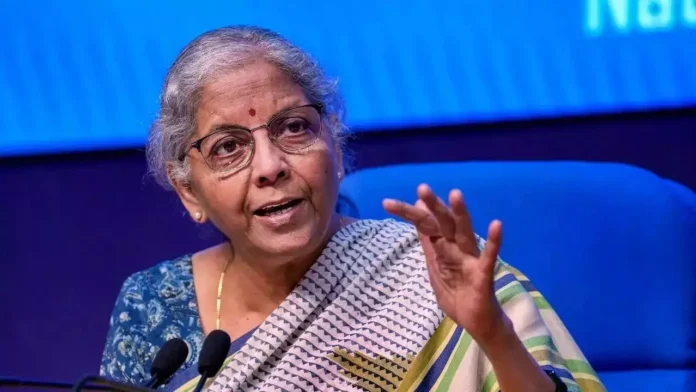Finance Minister Sitharaman Swiftly Addresses Taxpayer’s Refund Delay Complaint
In a recent exchange on social media platform X (formerly Twitter), Finance Minister Nirmala Sitharaman responded to a complaint from a citizen regarding the delay in receiving his income tax refund. The interaction has sparked discussions about the efficiency and responsiveness of the Income Tax Department, shedding light on the broader issues faced by taxpayers in India.
The incident began when a user took to X to express his frustration over the prolonged wait for his income tax refund. He wrote, “A simple refund is taking so much time, I’m not asking for a loan.” This message resonated with many other taxpayers who have experienced similar delays, highlighting a common grievance among the public.
In an unexpected but appreciated move, Finance Minister Nirmala Sitharaman personally responded to the tweet. She tagged the official account of the Income Tax Department and wrote, “Hopefully, you are attending to this.” This prompt response from a high-ranking official underscored the importance of addressing individual taxpayer concerns and demonstrated the government’s willingness to engage directly with citizens on public platforms.
Following the Finance Minister’s intervention, the Income Tax Department swiftly responded to the concerned citizen. They acknowledged the delay and informed him of the current status of his refund. While the specifics of the delay were not disclosed publicly, the interaction suggested that the department was now prioritizing the issue, thanks to the visibility brought by the Finance Minister’s tweet.
This exchange is significant for several reasons. Firstly, it highlights the power of social media as a tool for accountability and direct communication between citizens and government officials. In the past, such grievances might have been lost in bureaucratic red tape, but platforms like X enable real-time interactions and quick resolutions.
Secondly, the Finance Minister’s proactive approach sets a positive precedent for other government officials. By directly engaging with a taxpayer’s concern, Sitharaman not only addressed the specific issue but also sent a message that the government is listening and is committed to resolving public grievances.
Despite the positive outcome in this particular case, the incident underscores the broader challenges faced by the Income Tax Department. Delays in processing refunds can occur due to various reasons, including discrepancies in filed returns, verification processes, and technical issues within the department’s systems.
The department has been working to modernize its processes and improve efficiency through the adoption of new technologies and systems. Initiatives such as the Centralized Processing Center (CPC) for returns and the introduction of the faceless assessment scheme are aimed at reducing processing times and minimizing human intervention, thereby decreasing the potential for delays and errors.
Public sentiment around tax refunds is a critical issue. For many taxpayers, a refund represents not just a return of excess tax paid but also a timely financial relief. Delays can cause significant inconvenience and financial strain, particularly for those who are counting on the refund for personal or business-related expenses.
The prompt response from both the Finance Minister and the Income Tax Department in this case may help in restoring some confidence among taxpayers. However, consistent and systemic improvements are necessary to address the root causes of delays and ensure timely refunds for all taxpayers.
The government has introduced several measures to address these issues. The “Vivad se Vishwas” scheme, for example, was designed to resolve pending tax disputes quickly. Additionally, the emphasis on digitization and the implementation of the faceless assessment and appeal processes aim to make tax administration more transparent, efficient, and taxpayer-friendly.
Moreover, the government has been working on improving the grievance redressal mechanisms to ensure that taxpayer concerns are addressed promptly. The e-Nivaran facility, for instance, is an integrated platform that allows taxpayers to lodge complaints and track their resolution online.
The recent interaction between a citizen, Finance Minister Nirmala Sitharaman, and the Income Tax Department highlights the potential for positive change through direct communication and accountability. While the swift response in this case is commendable, it also draws attention to the need for systemic improvements within the tax administration system.
Ensuring timely tax refunds is crucial for maintaining public trust and confidence in the tax system. As the government continues to implement reforms and leverage technology to enhance efficiency, it is hoped that such delays will become less frequent, and the process of tax refunds will become smoother and more predictable for all taxpayers.

